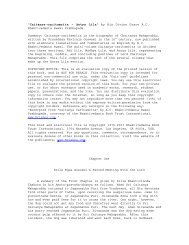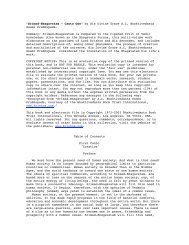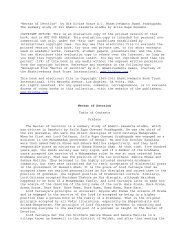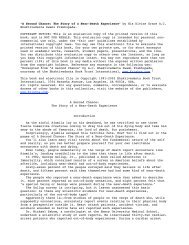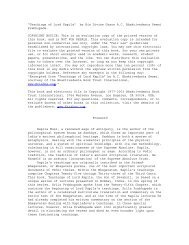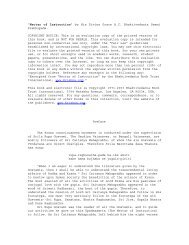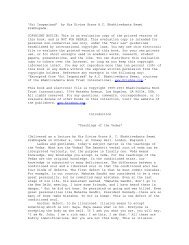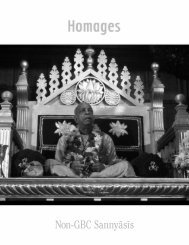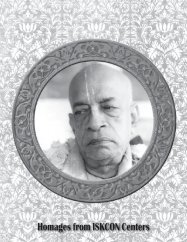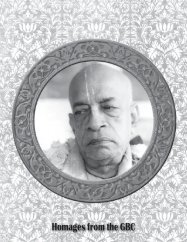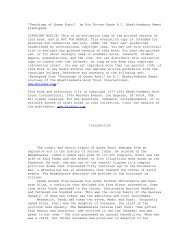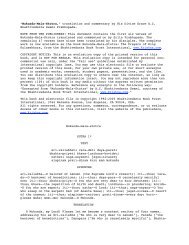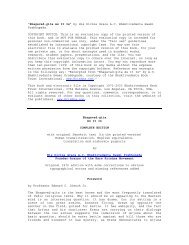Printing - Bhaktivedanta VedaBase 2003.1
Printing - Bhaktivedanta VedaBase 2003.1
Printing - Bhaktivedanta VedaBase 2003.1
Create successful ePaper yourself
Turn your PDF publications into a flip-book with our unique Google optimized e-Paper software.
had His pastimes are as good as Våndävana.<br />
Lord Caitanya's distribution of this love of God is compared with an ocean<br />
(rasa-arëava). What kind of ocean? Not the salty ocean that one cannot taste.<br />
The water of this ocean is so nice that if one drinks even one drop, he will like<br />
it more and more. It is not ordinary ocean water of which one cannot taste<br />
even a drop. Therefore it is called rasarëava. In this ocean there are different<br />
waves; an ocean does not stand still, for it is not impersonal or void. And as<br />
the ocean is always dancing with waves, similarly the ocean of transcendental<br />
love of Kåñëa as introduced by Lord Caitanya has constant waves, constant<br />
sound. One has to dive deep into that ocean. If one knows the secret and says,<br />
"Let me dive deep into the ocean of the transcendental loving movement<br />
introduced by Lord Caitanya," he immediately becomes one of the<br />
confidential devotees of Rädhä and Kåñëa.<br />
Therefore Narottama däsa Öhäkura concludes this song by saying, gåhe bä<br />
vanete thäke, 'hä gauräìga' bo 'le òäke. It is not necessary that one become a<br />
mendicant or give up his family life and society. One can remain wherever he<br />
finds it suitable, whether as a householder, as a brahmacäré, as a vänaprastha,<br />
or as a sannyäsé. Vänaprasthas and sannyäsés are supposed to live outside of the<br />
city. Vanete means "forest." Formerly, those who were in spiritual<br />
consciousness used to live in the forest to become free of the turmoil of city<br />
life. But that is not possible now. In this age no one can go into the forest.<br />
That requires practice, and no one is practiced to that line. Therefore,<br />
generally one is recommended to live with his friends, wife, and children.<br />
That doesn't matter, but he must take to the process of Kåñëa consciousness as<br />
introduced by Lord Caitanya. It is not difficult. The real thing is that one has<br />
to accept the movement of Lord Caitanya-chanting, dancing, and eating<br />
kåñëa-prasäda. Even if one is in family life, there is no difficulty. He can just<br />
sit down, chant Hare Kåñëa, dance nicely, and then take kåñëa-prasäda.<br />
Everyone can do this. Those who have renounced this world, sannyäsés, also<br />
can do it; there is no difficulty. Therefore, Narottama däsa Öhäkura says that<br />
it doesn't matter whether one is a brahmacäré, gåhastha, or sannyäsé. He says, "If<br />
195



